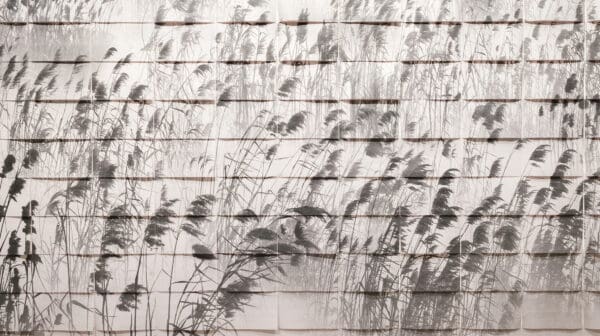
Poetics of Relation
Tender Comrade, currently on show at Sydney’s White Rabbit Gallery, creates a new vocabulary of queer kinship by reimagining the relationship between artworks, bodies and space.
Many had said that whinging – that clear, colourless but noxious gas that powers the art world – was a finite resource. Like the depleted ozone layer before it, whinging was being eroded by sensible, rational debate and reasonable, sane conversation. In a few short years whinging – and its derivative, whining – would be a thing of the past. Not so.
The world convulsed with a roiling wave of incredulity. Once all the crockery had stopped vibrating, the windows had ceased rattling and the dust had finally settled, everyone realised we’d entered a whole new era.
In ye olden days, it was the fashion that artists, their friends and families, dealers and some critics (and the occasional curator) would complain about the lack of opportunity for artists. For years, maybe decades or even centuries, artists shared their disappointment, saying that they couldn’t exhibit their work because there just weren’t enough good galleries to go around. Or, if there were enough good galleries, some kind of casual cruelty stopped them having an exhibition. And if they did have an exhibition, the reason their work didn’t sell was because it was too brave, forward-thinking, rational or whatever. The rising gas from this conversation, this incessant complaining, rose to the roofs of coffee shops and art schools and collective meeting rooms, where it gathered into vents and then piped down into the basement, powering the fans in summer and heating the pipes in winter.
This was the way it had always been. If you were an artist, no one cared about you. It wasn’t that you didn’t hold a proper job or have a decent mortgage or possess the ability to converse with normal, decent members of society – the true sadness of the artist’s lot was that no one really gave their opinions or thoughts much credence, at least not until they were put on canvas and given a pretty title that summed up man’s inhumanity to man. The consolation for artists was that they could hang out together and organise shows in artist-run galleries that no one aside from their friends and families attended and from which they sold very few works. The upside of all that was that artists could languish in well-deserved obscurity until they were truly ready to be famous or throw in the towel and became an art teacher.
But sometime in the early part of the new century all that began to change. Regular people in society started to realise that artists were special. Sure, they were creative, but they also held very deep feelings and had profound thoughts about all sorts of stuff that had nothing to do with art. They weren’t just painters, they were philosophers; they didn’t just do performances, they were political agitators; they didn’t just shoot wedding videos on the weekend, they were videographers; and so on.
In response to all this conceptual awesomeness people started throwing money at artists in the form of grants, prizes, stipends and residencies. All you have to do these days is apply to get money and it’s yours. There’s money for exhibitions, as artist-run galleries get professional with fancy websites and marketing consultants. You want a show? Just say when you want it! Collectors are lining up to buy the work of artists fresh out of art school and companies synergise art into a glorious marketing paradigm that hits about 20 discrete publics and monetises the creative industries as part of a program to generate an even greater contribution to GDP.
Looking over this vast and incredible landscape, artists have turned their discontent into a finely crafted and artisanal complaining that glints in the discreet downlights of the nearest pop-up gallery. It is an endlessly renewable resource that can never run out: where once artists of all kinds dedicated their lives to the furtherance of their art, nowadays most energy is expended deploring the work of others – not good enough, never good enough. And so we enter a new era where the success of everything is the very reason for a deep, resounding resentment. Mark this day in your calendar: we’ve reached peak whinge and it’s never going to end.